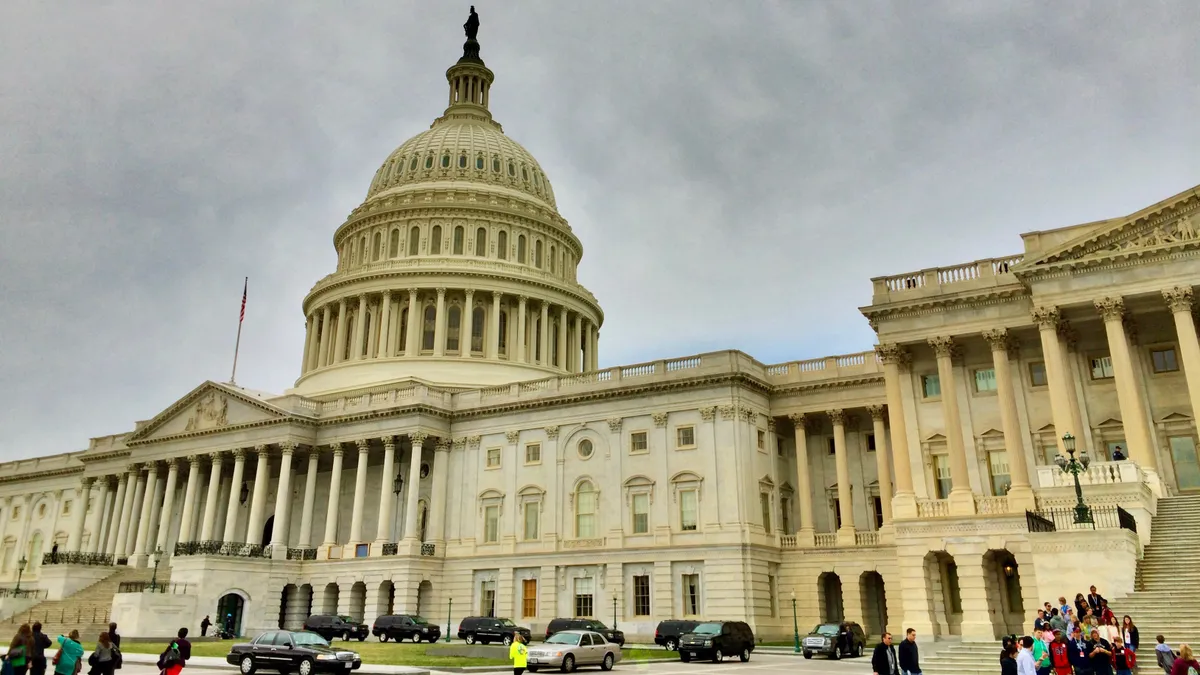UPDATE: March 8, 2021: The U.S. Senate on Saturday passed President Biden's $1.9 trillion coronavirus relief package, the American Rescue Plan, and preserved the $350 billion in direct aid set aside for state and local governments.
The House is expected to pass the Senate's version this week before it goes to Biden for his signature.
Dive Brief:
- The U.S. House of Representatives early Saturday passed President Joe Biden's $1.9 trillion coronavirus relief package, the American Rescue Plan, which includes $350 billion in financial assistance for state and local governments.
- Under the terms of the bill, governments can use the funds to respond to the public health emergency, cover related costs and replace lost revenue. The legislation will next be voted on by the U.S. Senate, having passed the House 219-212.
- In a speech after the vote, Biden said it means elected leaders are "one step closer to getting state and local governments the money they need to prevent massive layoffs for essential workers." Both the National League of Cities (NLC) and U.S. Conference of Mayors (USCM) released statements praising the bill’s passage.
Dive Insight:
Biden's proposal to provide direct aid to state and local governments comes as city financial leaders are concerned about their ability to meet fiscal obligations in the coming years.
Cities face a projected $90 billion budget shortfall, according to a survey released by NLC in early February. And 87% of local budget officials believe they will struggle to meet monetary obligations without further federal help in FY21, up from 78% in FY20. That reality could mean job and budget cuts in areas like education, emergency response and transportation.
"For nearly a year, local leaders of America's 19,000 cities, towns, and villages have been asking for federal help to address the unprecedented financial strains caused by COVID-19," NLC CEO and Executive Director Clarence Anthony said in a statement. "Local governments everywhere are anticipating federal aid to stave off additional and staggering job losses that severely impact their ability to help communities recover from the pandemic while preserving the essential services that their residents need to rebuild."
USCM President and Louisville, KY Mayor Greg Fischer said while COVID relief for local governments has been a contentious issue in the past, helping cities recover will be crucial. USCM previously called for $250 billion in federal aid to support flexible emergency assistance for state and local governments, but no aid was forthcoming from Congress in its December relief package.
"[The bill] offers the American people hope and optimism that this painful period may soon be behind us," Fischer said in a statement. "The fiscal relief passed today will help close deep budget holes and enable cities to be an engine of our recovery."
And while city leaders said they are desperate for immediate relief, Fischer said the time is also right to look ahead to a post-COVID reality and rethink aspects of city life. He said the pandemic's impacts, especially on disadvantaged communities, has shown how much work needs to be done.
"This pandemic has shaken us all and revealed the depths of many systemic challenges facing our communities," Fischer said. "Local governments have been working to help our residents get through this crisis from the start, but the costs have been significant. This bill will allow us to overcome the pandemic and move into a new phase of recovery."
Anthony and Fischer said the bill must move quickly through the legislative process so residents can get the help they need. Biden echoed that sense of urgency from city leaders and said the Senate must act quickly to pass the legislation. "We have no time to waste," he said.












